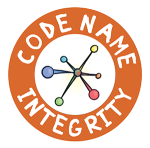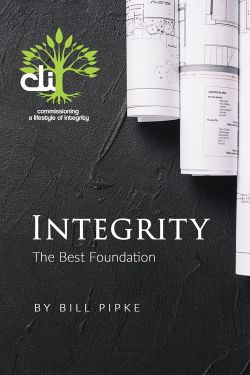Trust - Part 2 Session 2
Well, welcome back.
I'm sure there have been some meaningful and inspiring stories shared in your groups. Thanks for being open in your sharing, and what you share makes a difference. And remember, what you share remains in the group.
Now, in this session, we're going to consider how trust can be lost. It is very important to guard your reputation and your character.
So let me remind you how to build a trust account: First, trust deposits add up slowly over time. Remember too, generally, trust deposits are made in small, regular amounts, not just one big deposit. Remember also that with some withdrawals, they act like an investment that will increase the value of your account. But any untrustworthy action, whether others know about it or not, will affect the true value of your trust account. And significant, untrustworthy actions will actually empty your account; and sometimes, misspent trust will close your account until you identify your failure and then address it. If we define the problem, we can address it.
What destroys trust? In my book, Integrity: The Best Foundation, I suggest that there are five things that undermine trust. The first is deception.
Now, deception is more than false information. It implies intentional misrepresentation. Trust cannot tolerate deception. Those two things refuse to coexist.
Deception is not easily maintained. You know, it takes a lot of work to support a lie. And the command given to the commanders of the Nazi death camps was to deceive the prisoners. It was said, those going to their death must be deceived until the end.
Now, Saul wrote, "We renounce secret and shameful things. We do not use deception, nor do we distort. On the contrary, by setting forth the truth plainly, we commend ourselves to everyone's conscience."
Trust chooses to always resist deception.
The second thing is criticism. Criticism can be life-giving or deadly. Now, when criticism is motivated from a caring heart, it's a gift of kindness. Most people don't like to have their weaknesses pointed out; I know I don't. But unless we admit our failures, we can't address them. But if we will address them, they will become a benefit.
And mean-spirited criticism, attempts to put people down. Unkind criticism destroys relationships and respect. So Paul wrote, "Do not let any unwholesome talk come out of your mouths, but only what is helpful for the building of others up according to their needs, that it may benefit those who listen."
The third thing that destroys trust is defensiveness. When we deny personal responsibility or we shift the blame to others, we will weaken our relational foundation. It is better to face reality, admit a problem, and accept responsibility on our part. Just be truthful.
Paul refused to see himself as a victim; instead of resorting to defensiveness, he accepted the challenge as an invitation to transformation, and he exercised the courage to make something beautiful and meaningful, even out of his hardships.
The fourth thing is contempt. If you consider yourself more qualified, more intelligent, more powerful, more skilled, more important, you're likely to treat others with contempt. And contempt always produces distrust.
In Saul's later years, some of the people he introduced to faith dishonoured him, but his attitude towards them just refused to change. He did not show them contempt. Rather, he chose to continue to respect them. And by remaining respectful towards them, he was able to regain their confidence.
Fifthly, inconsistency. Inconsistency manufactures doubt. I mean, who wants to do business with a company that's inconsistent? Who likes the stress of a relationship with inconsistent people? And who is open to a religion that is inconsistent between what it says and what it does?
Paul traveled with a company of people, and many of those people were very reliable. But there was a time when a few conducted themselves irresponsibly and very inconsistently, and their conduct threatened his team and threatened his reputation. Therefore, Paul approached the parties and held them accountable, and his confrontation strengthened the team and enhanced their work, because Paul's team again became consistent.
So here's our group question to begin to discuss:
Why do people avoid businesses or forming relationships with people they can't trust?
How does the environment benefit the tree?




